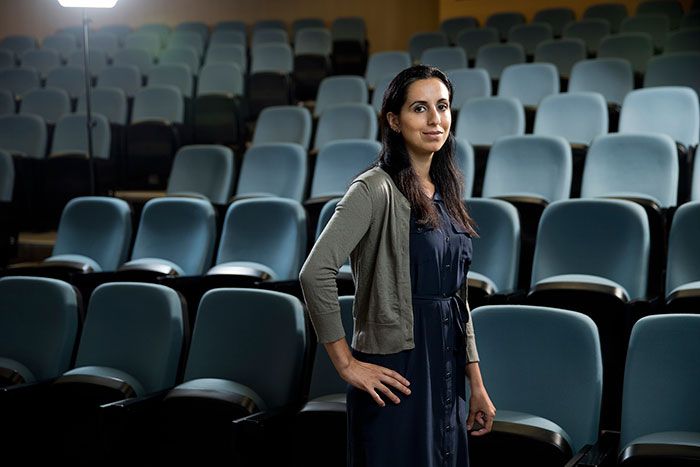MBA diary: Clear presentation danger

Ariadna Peretz, a student at Chinese University of Hong Kong, says presentation skills can be an overlooked aspect of some MBA programmes
MOST MBA students are used to giving presentations in class. But does this equip you for the real business world? In March, I and four other MBA candidates from the Chinese University of Hong Kong represented our school at the Hult Prize competition in Shanghai. Each year the Hult Prize focuses on a pressing global issue and crowdsources potential solutions. This year’s problem was non-communicable diseases (NCDs) and the task was to use pre-existing means to reduce their toll on the world’s poorest people.
The competition takes place in six different locations: Shanghai, Dubai, San Francisco, Boston, London and Sao Paolo. At the Shanghai event there were 30 teams and each of them presented to a handful of judges. Of those, four were short-listed and asked to present to all 25 judges and every participant. Our team didn’t win, nor were we even short-listed to be a regional finalist. Even though I had tempered my expectations it was devastating not hearing our university’s name called upon the stage. I had fallen in love with our idea—a “life savings account” that encourages slum-dwellers to save what little money they may have, via mobile payments, which accrues above-market interest and can be used at pre-selected medical service providers.
Watching the finalists pitch was the highlight of the competition. I realised presentation and persuasion matters. Obviously, substance is of the essence (and the finalists’ ideas were all amazing), but if ideas had not been presented in such a persuasive and professional way, and if they had not practiced until they could recite their lines in their sleep, they probably would not have made the cut.
It takes practice and creativity to get your message through, especially in 12 minutes, the maximum time we were allowed. It was evident that the finalists had spent a lot of time crafting their story and perfecting their presentation. What made them special was that each finalist group focused on the people their idea would help. Two groups focused on specific women: they named her, showed a photo and talked about her family and health. The winning team started their presentation admitting they had several relatives who suffered from NCDs, making it extremely personal. All four created an immediate connection and interest in their goals. They also all had a creative name for their idea as well as a logo and a slogan. Regardless of how developed their plans were, this gave the audience the impression that their ideas had already been actualised.
Excellent presentation skills are a core competency, inside the boardroom and out. Unfortunately, at our school few resources are dedicated it. To compensate, two motivated and generous students in my class created and led a full-day presentation-skills workshop. All the attendees were filmed twice–once solo and the other in a group presentation–and then watched their performance back. By the end of the day we had all improved tremendously and I have seen the progress continue over the past few months.
While oration skills are important, it is equally important to apply the principles of persuasion, something that the Hult Prize finalists also employed. Those who already have an MBA are surely familiar with Robert B. Cialdini’s six principles of persuasion, which range from the idea of reciprocity to being authorative to being liked. This topic has been covered in no fewer than three of my classes: management consulting, leadership development and business negotiation. Overkill? Not really. Persuasion and leadership are the essence of an MBA. The quantitative lessons we learn are important but it is the soft skills that can move people towards your company’s goal. I urge you to take advantage of any public speaking or presentation-skills seminars your school may offer and to make the most of all your in-class presentation opportunities. Communication is the ultimate key to getting business done.
Media: Economist
Section: Which MBA?/ Articles/ MBA diaries
Date:

